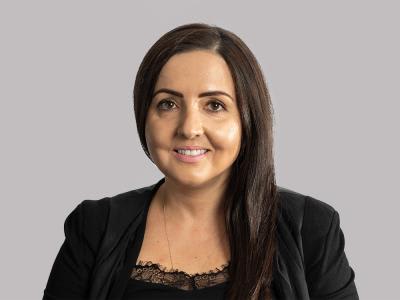The 2025-26 Western Australia State Budget is focused on easing cost of living pressures, addressing housing shortages, strengthening health and education, and diversifying the state’s economy.
Nearly $1 billion is set aside for direct cost of living relief, including battery rebates, student assistance payments, KidSport vouchers, capped public transport fares, free student travel, and increased regional travel support for pensioners. The government is also keeping household fee and charge increases below inflation.
Housing is a major priority, with a record $1.4 billion allocated to boost supply and affordability. This includes workforce initiatives, infrastructure to unlock new homes, stamp duty relief for first home buyers, shared equity and modular home loan products, and targeted regional housing programs.
Health and mental health services will see a $1.4 billion boost, supporting more staff, hospital beds, and new infrastructure. Education and training receive $1.8 billion for new schools, upgrades, disability support, and expanded TAFE and school programs.
Economic diversification is being driven by the $1.4 billion "Made in WA" plan, which supports local manufacturing, battery and renewable industries, and major economic infrastructure. The budget also outlines a $38 billion infrastructure program over the next four years, with $12 billion to be spent in 2025-26 alone on hospitals, schools, community facilities, energy, and water projects.
This ambitious agenda is underpinned by a strong fiscal position. WA is forecasting its seventh consecutive surplus, with $2.5 billion in 2024-25 and similar surpluses projected through 2028-29. Net debt remains low by national standards, expected to be $33.6 billion by June 2025, and is set to stay the lowest among Australian states as a share of the economy. The state’s economic growth, low unemployment, and rising population provide a solid foundation for these investments.
Given these healthy surpluses and manageable debt, the budget’s relief measures and investments appear feasible and sustainable. The cost of living support will help households manage inflation and boost local spending. Housing initiatives aim to ease shortages and improve affordability. Investments in health, education, and infrastructure will support workforce growth, productivity, and long-term economic resilience. The focus on economic diversification and renewables positions WA well for future challenges and opportunities.
Overall, the 2025-26 budget balances immediate relief with long-term investment, supporting WA’s continued prosperity and making the most of its strong fiscal position.
Below is a summary of the most significant allocations and their implications for the state’s finances.
Duties in focus
The 2025-26 Budget implements the Government’s election commitments delivering additional transfer duty relief for around 5,500 first home buyers per year by increasing the exemption and concession thresholds for established properties and vacant land.
In addition, the off-the-plan transfer duty concessions for pre-construction and under construction transactions are being extended and expanded, and from 1 July 2025 there will be a temporary increase in land tax relief for build-to-rent developments.
First Home Owner Transfer Duty Concession
For transactions entered into on or after 21 March 2025, first home buyers of established properties will receive:
- a transfer duty exemption for purchases up to $500,000 (up from $450,000);
- for purchases in the Perth and Peel regions, a concessional rate of duty for purchases up to $700,000 (up from $600,000); and
- for purchases outside the Perth and Peel regions, a concessional rate of duty for purchases up to $750,000 (up from $600,000).
In addition, first home buyers that purchase vacant land statewide will receive a transfer duty exemption on purchases up to $350,000 (up from $300,000) and a concessional rate of duty for purchases up to $450,000 (up from $400,000).
How does this effect a first home owner’s pocket?
Home buyers can now qualify for the First Home Owner Transfer Duty Concession for house priced up to $700,000 for Perth Metro and the Peel region and $750,000 for regional areas.
A home buyer will pay no transfer duty on the first $500,000 of the purchase price. If a house was bought for $600,000 prior to this new concession, the transfer duty payable would have been $22,515. Under the new concession the transfer duty will be $13,630 providing the purchaser with a $8,885 duty saving.
Should the house be purchased for $600,000 and it is located in the regional area (i.e. outside the Perth Metro or Peel region), the purchaser will only pay transfer duty of $11,890 which will deliver the purchaser a saving of $10,625.
Where home buyers were incorrectly assessed at the higher transfer duty rate after 21 March 2025, a re-assessment will be done and a refund made to the home buyer.
Off-the-Plan Transfer Duty Concession
The Government has extended the off-the-plan transfer duty concession by 12 months, from 30 June 2025 to 30 June 2026. This measure aims to increase housing supply and make home ownership more affordable to Western Australians. In addition, for eligible pre-construction and under construction transactions entered into on or after 21 March 2025, the Government has made the concession more generous by:
- expanding the concession to off-the-plan dwellings on single-tier strata schemes and community title (building) schemes (excluding survey-strata schemes), including townhouses and villas; and
- increasing the concession’s lower and upper property price thresholds to $750,000 and $850,000 (up from $650,000 and $750,000 respectively).
Off-the-plan concession (pre-construction)
From 21 March 2025 until 30 June 2026 a person that enters a contract to purchase a dwelling in a multi or single-tier strata scheme or community title (building) scheme before construction of the development commences is eligible for a transfer duty concession of the following amounts, with a maximum value of $50,000:
- 100% if the contract value is less than $750,000;
- between 10% and 50% if the contract value is between $750,000 and $850,000; and
- 50% if the contract value is greater than $850,000.
Off-the-plan concession (under-construction)
From 21 March 2025 until 30 June 2026 a person that enters a contract to purchase a dwelling in a multi or single-tier strata scheme or community title (building) scheme after the development commences, but before it is completed, is eligible for a transfer duty concession of the following amounts, with a maximum value of $50,000.
- 75% if the contract value is less than $750,000;
- between 75% and 37.5% if the contract value is between $750,000 and $850,000; and
- 37.5% if the contract value is greater than $850,000.
Increased Land Tax Relief for Build-to-Rent Developments
To support the growth of build-to-rent developments, the land tax exemption for eligible projects that become operational (i.e. able to be lawfully occupied) between 1 July 2025 and 30 June 2028 will increase from 50% to 75%.
The increased land tax exemption of 75% will apply for the first three assessment years only, after which the exemption will revert to its original setting of 50%. This means that 2030-31 will be the final year when a 75% land tax exemption can be applied to an eligible project that became operational in 2027-28.
The measure is intended to further encourage investment in the build-to-rent sector, increase the supply of long-term rental housing and improve housing affordability and availability across Western Australia.
The legislation
The Duties Amendment Act 2025 (WA) received Royal Assent on 19 June 2025.
The increased stamp duty exemptions and concessions for first home buyers apply to transactions entered into on or after 21 March 2025.
Any eligible transactions entered into from 21 March 2025 that were assessed using the previous thresholds or rate will be reassessed.
Also see: Changes to the first home owner rate of duty and the off-the-plan duty concession
FOR MORE INFORMATION
If you would like to discuss how the changes will impact you or your business, please contact our experts, Devika Shivadekar, Mira Brewster, Theresa Myburgh and Sam Mohammad.








